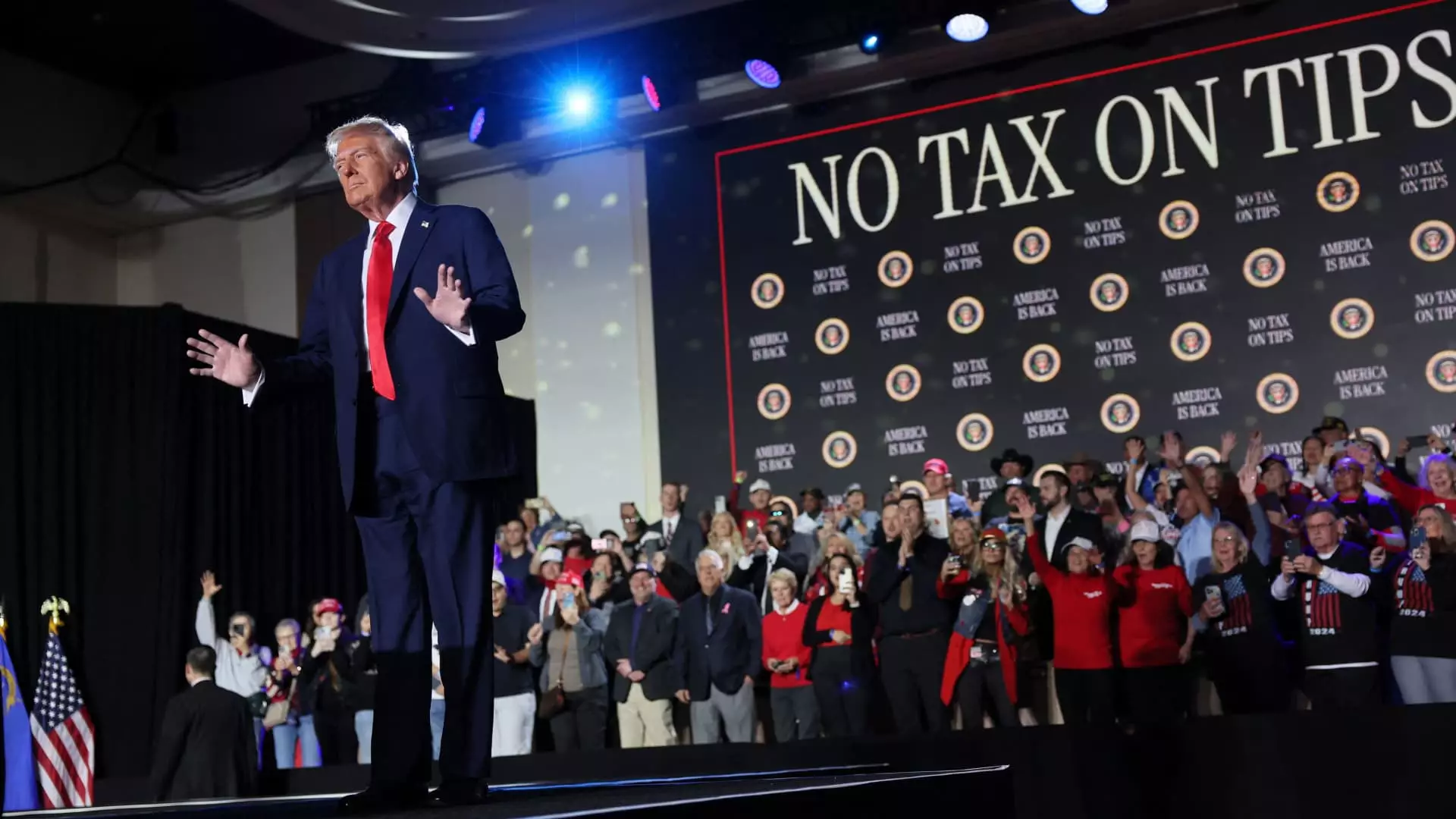In an unexpected move, the Senate recently passed the No Tax on Tips Act, a piece of legislation that brings the promise of tax relief into sharper focus. On the surface, it appears to be a noble effort aimed at supporting millions of American workers who rely on tips as a significant portion of their income. Touted as a potential game-changer for tipped workers, the bill has garnered bipartisan support and aligns itself with notions floated during Donald Trump’s 2024 campaign. However, as the dust settles, it becomes crucial to scrutinize not just the intentions behind this legislation but also its implications and shortcomings.
The Structure of the Proposal
The crux of the No Tax on Tips Act is a proposed federal income tax deduction of up to $25,000 per year for workers who report cash tips to their employers. The mechanics, however, raise eyebrows. There’s an income cap of $160,000 for eligibility starting in 2025, indexed for inflation. While this might seem beneficial, one must ask: Who exactly does this help? By the time tax season rolls around, will it truly provide the relief promised, or will it primarily benefit a select group while neglecting the most vulnerable workers in the tipped economy?
At first glance, the bill champions fairness by allowing workers in tipped occupations—those in the hospitality and service industries—to deduct their reported tips from taxable income. But in reality, it detracts from broader issues surrounding income inequality. The very fact that the proposal has attracted attention from prominent political figures—including both Trump and Kamala Harris—should raise concerns about its authenticity. A political narrative claiming to champion the working class yet exerting selective benefits is not comforting.
The Practical Limitations of the Deduction
Critics like Alex Muresianu from the Tax Foundation have pointed out glaring limitations, particularly the fact that a significant portion of tipped workers are part-timers likely to fall beneath the federal income tax threshold. For them, the deduction may offer minimal benefits. This raises a critical question: Is it fair to cater to a fraction of the workforce while ignoring the realities faced by most tipped workers? The stark reality seems to lean toward favoring moderate to middle-income earners, while the lowest earners, who could use the most help, might see little to no benefit from this tax exemption.
Moreover, the idea of treating income derived from tips differently from regular wages introduces troubling issues of equity. Why should a waitress, earning a $35,000 salary with an additional $10,000 in tips, be afforded a tax exemption that is denied to a cashier earning the same amount? Muresianu’s analogy exposes an absurdity in the logic underpinning this proposal. Valuing certain professions over others based solely on compensation methods only perpetuates class divisions and hinders genuine pathways to financial equity.
The Risk of Misclassification and Economic Disruption
Another critical concern is the potential for misclassification of income as tips, a risk that could create economic havoc. What might seem like a benign incentive may incentivize workers to mask their true income in pursuit of a tax break. This is problematic for a society already grappling with income disparity and ethical work practices. Instead of providing relief, the legislation ironically opens a Pandora’s box of possible abuses, complicating what should be a straightforward approach to income taxation.
As the implications of this legislation unfold, it’s crucial to recognize that the practice of tipping is ultimately a social behavior rather than merely a transaction. Approaching the issue solely from a financial perspective neglects the complexities of human interaction and societal norms. The proposed deduction may very well reshape the very nature of compensation structures in the service industry, raising ethical dilemmas and unforeseen consequences.
As the Senate smiles and pats itself on the back for this apparent victory in labor rights, a critical lens reveals a more complex narrative. While the notion of a ‘no tax on tips’ policy provides a promising rhetoric of support for the working class, the reality is that it is riddled with contradictions and inequities. Those who genuinely need relief may find themselves overlooked by a legislation that ultimately benefits a more privileged demographic within the workforce. The sentiment of fairness in taxation is a noble endeavor, but the execution must ensure that it does not exclude the very individuals it intends to support.

